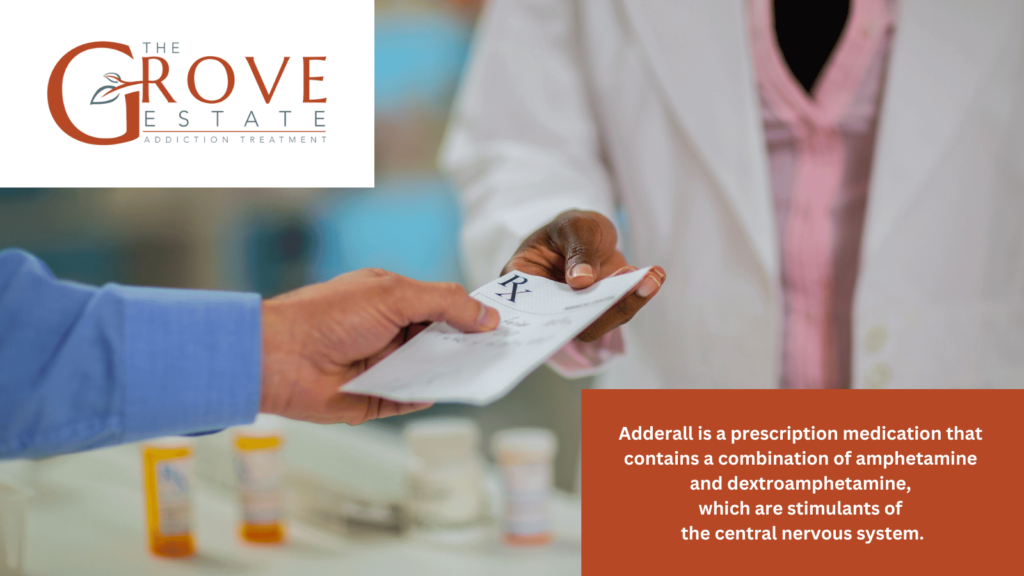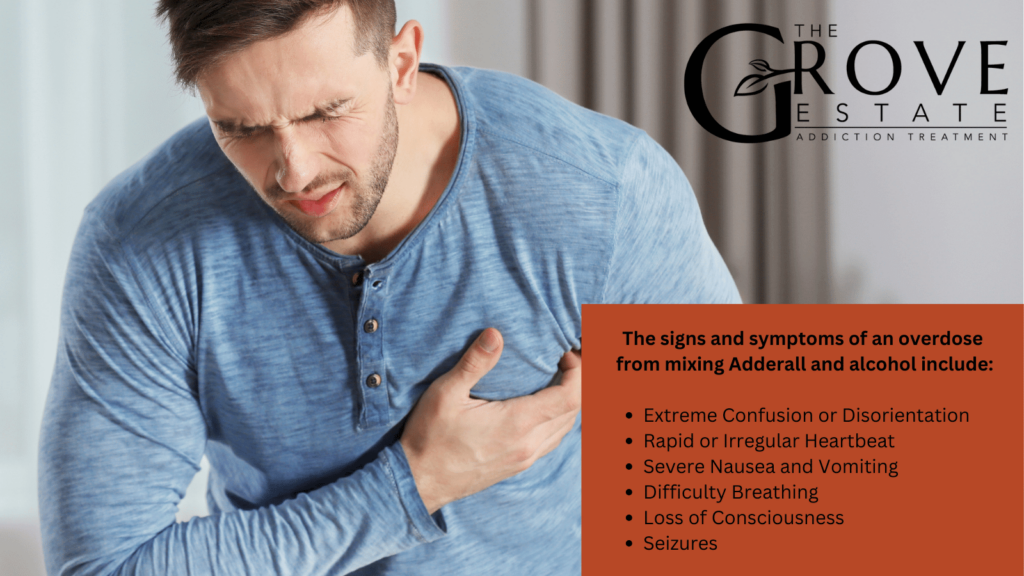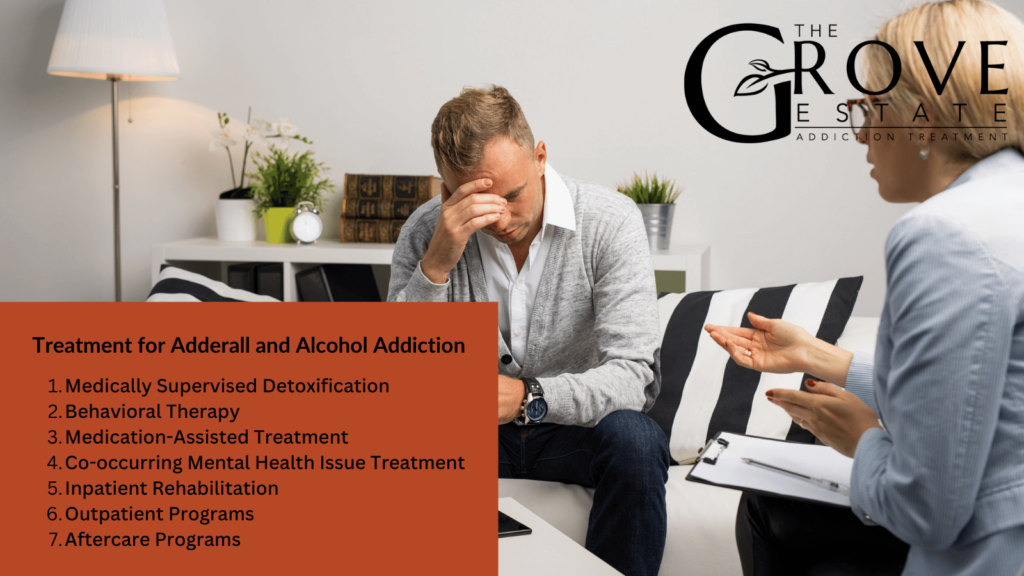Mixing Adderall, a prescription medication commonly used to treat attention deficit hyperactivity disorder (ADHD) and narcolepsy, with alcohol can pose serious health risks. Adderall is a central nervous system stimulant composed of amphetamine salts, which increase alertness, attention, and energy. Conversely, alcohol is a depressant that slows down brain activity and impairs cognitive and motor functions. Combining these substances can lead to dangerous interactions, masking the effects of each and leading to potentially harmful behaviors or health complications.
The National Institute on Drug Abuse reported that in 2020, approximately 5.1 million individuals in the U.S. aged 12 and above misused prescription stimulants, including Adderall, indicating its extensive use and the risk of misuse. This showcases the prevalence of Adderall as a cognitive enhancer among students and professionals, and it points to the potential dangers of combining this medication with alcohol in daily life.

What is Adderall?
Adderall is a prescription medication that contains a combination of amphetamine and dextroamphetamine, which are stimulants of the central nervous system. It is commonly prescribed to treat attention deficit hyperactivity disorder (ADHD) and narcolepsy. In patients with ADHD, Adderall helps to increase attention and focus, and decrease impulsivity and hyperactivity. For those with narcolepsy, it helps to prevent excessive daytime sleepiness.
Adderall works by increasing the levels of neurotransmitters in the brain, specifically dopamine and norepinephrine. This increase enhances brain activity, leading to improved focus, attention, and alertness. It also affects the body by increasing heart rate and blood pressure, and can lead to a feeling of increased energy. While Adderall can be highly effective in treating the conditions for which it is prescribed, it also has the potential for abuse and addiction, especially when used outside of medical supervision.
How Does Alcohol Interact with Adderall?
Alcohol and Adderall have opposite effects on the central nervous system: Adderall is a stimulant that increases brain activity, while alcohol is a depressant that slows it down. Mixing the two can mask the effects of each other, leading to potential overconsumption of alcohol and increased risk of alcohol poisoning.
This combination can strain the heart, elevate blood pressure, and increase the likelihood of dehydration and risky behaviors. Long-term, it may contribute to anxiety, depression, and substance use disorders. Therefore, combining Adderall with alcohol is generally advised against due to these risks.
What are the Immediate Dangers of Mixing Adderall with Alcohol?
Mixing Adderall with alcohol poses several short-term health risks and potential complications due to their contrasting effects on the body:
- Cardiovascular Stress: The combination can lead to increased heart rate and blood pressure, putting extra strain on the cardiovascular system and raising the risk of heart-related issues.
- Risk of Overconsumption: Alcohol can mask the stimulating effects of Adderall, leading individuals to drink more than they can safely handle, increasing the risk of alcohol poisoning.
- Impaired Judgment and Motor Skills: While Adderall can make a person feel more alert, mixing it with alcohol may impair judgment and motor skills, leading to dangerous decisions and increased risk of accidents and injuries.
- Dehydration and Alcohol Toxicity: Both Adderall and alcohol cause dehydration, and their combined use can exacerbate this effect and increase the toxicity of alcohol in the body.
- Mental Health Effects: The use of Adderall and alcohol together can lead to heightened anxiety, mood swings, and other mental health disturbances in the short term.

Can You Overdose on Adderall and Alcohol?
Overdosing on Adderall and alcohol is possible and can be extremely dangerous. The risks increase significantly when these substances are used together, due to their opposing effects on the central nervous system. Adderall increases neurotransmitter activity in the brain, leading to heightened alertness and energy. Alcohol, being a depressant, can mask the stimulant effects of Adderall, leading individuals to consume higher amounts of both substances than they can safely tolerate. This can result in an overdose situation much more rapidly than when either substance is consumed alone.
Signs and Symptoms of an Overdose
The signs and symptoms of an overdose from mixing Adderall and alcohol include:
- Extreme Confusion or Disorientation
- Rapid or Irregular Heartbeat
- Severe Nausea and Vomiting
- Difficulty Breathing
- Loss of Consciousness
- Seizures
What are the Long-Term Consequences of Regularly Mixing Adderall and Alcohol?
Regularly mixing Adderall and alcohol can lead to chronic health issues and significantly impact mental health over time.
Chronic Health Issues Arising from Prolonged Use
- Cardiovascular Damage: Long-term use can strain the heart and lead to hypertension, heart disease, or stroke.
- Liver Damage: Both substances can be toxic to the liver, especially when used frequently and in large amounts.
- Neurological Impairment: Chronic use can lead to changes in brain function, potentially causing cognitive deficits and coordination problems.
- Addiction and Dependence: Regularly combining these substances can increase the risk of developing an addiction to either or both.
Impact on Mental Health
- Mood Disorders: Prolonged use can exacerbate or contribute to the development of anxiety, depression, and other mood disorders.
- Behavioral Changes: Individuals may experience increased impulsivity, risk-taking behaviors, and a decline in social functioning.
- Cognitive Decline: Long-term abuse can affect cognitive abilities, including memory, attention, and decision-making processes.
What are the Side Effects of Mixing Alcohol and Adderall?
Mixing Adderall and alcohol can lead to a range of side effects, from immediate to long-term, due to their conflicting effects on the body:
- Increased Heart Rate and Blood Pressure: The stimulant effects of Adderall combined with alcohol can cause cardiovascular stress.
- Reduced Awareness of Intoxication: Adderall can mask the depressant effects of alcohol, leading to a misjudgment of one’s level of intoxication and potentially to alcohol poisoning.
- Heightened Risk of Substance Misuse: The combination can increase the likelihood of developing a dependency on one or both substances.
- Mental Health Impact: Mixing these substances can exacerbate anxiety, depression, and other mental health disorders.
- Impaired Judgment and Coordination: The combination can lead to poor decision-making and increased risk of accidents or injury.
- Dehydration and Exhaustion: Both substances can dehydrate the body, and their combined use can lead to increased physical strain and fatigue.
Why Do People Mix Adderall and Alcohol?
People mix Adderall and alcohol for various reasons, such as enhancing social experiences, with Adderall offsetting the sedative effects of alcohol to drink more and stay awake. Others might combine them under performance pressure, using Adderall to maintain alertness during social events after work or study. Some individuals engage in self-medication, using alcohol to counteract Adderall’s stimulant effects and induce relaxation or sleep. This combination, whether for recreational purposes or self-medication, carries significant risks, including increased chances of addiction, cardiovascular stress, impaired judgment, and exacerbated mental health issues.

What is the Treatment for Adderall and Alcohol Addiction?
Treatment for Adderall and alcohol addiction combines medical supervision, therapy, and support networks. The process typically starts with medically supervised detoxification to manage withdrawal symptoms safely. Following detox, individuals often engage in behavioral therapy, such as cognitive-behavioral therapy, to understand their addiction triggers and develop coping strategies. For some, medication-assisted treatment may be used to alleviate withdrawal symptoms and cravings.
Comprehensive treatment also addresses co-occurring mental health issues, with options ranging from inpatient rehabilitation programs, which provide intensive support and structure, to outpatient programs that allow for recovery while maintaining daily responsibilities. Long-term success in recovery is supported by aftercare programs, including therapy and support groups, to prevent relapse and sustain sobriety.
Can mixing Adderall and alcohol lead to changes in personality?
Yes, chronic use of Adderall and alcohol can affect personality traits. It may lead to increased impulsivity, aggressiveness, and mood swings, as well as contribute to the development of anxiety and depressive disorders.
Is it possible to reverse the damage caused by mixing Adderall and alcohol?
Some of the damage can be reversed with sustained abstinence, healthy lifestyle changes, and appropriate medical and psychological interventions. However, the extent of reversibility depends on factors like the duration and intensity of substance use, individual health, and the presence of co-occurring disorders. Early intervention and treatment can improve outcomes.
Are certain age groups more at risk for adverse effects from mixing Adderall and alcohol?
Young adults, particularly college students, are at a higher risk due to increased availability and social pressure to use these substances. However, older adults may also face significant risks due to potential interactions with other medications and age-related health issues.
What are the risks of using Adderall to counteract alcohol’s effects in social situations?
Using Adderall to counteract the depressant effects of alcohol in social situations can lead to dangerous behaviors, including increased consumption of alcohol due to the reduced perception of intoxication. This practice can result in serious risks such as alcohol poisoning, heightened impulsivity, and compromised decision-making abilities, making such social situations more perilous.
In understanding the broader context of substance interaction, it’s also helpful to consider the dynamics between alcohol and Amoxicillin. Like the combination of Adderall and alcohol, mixing alcohol with certain antibiotics can alter the effectiveness of the medication and lead to adverse health effects, underscoring the importance of awareness and caution when combining substances.
What steps can someone take if they’re struggling with the misuse of Adderall and alcohol?
For those struggling with the misuse of Adderall and alcohol, seeking professional help is an important first step. Treatment options may include medically supervised detoxification to manage withdrawal symptoms, followed by therapy to address the underlying causes of misuse. Behavioral therapies, such as cognitive-behavioral therapy, can be particularly effective in helping individuals develop coping strategies and make sustainable changes.
Engaging in individual counseling provides a supportive space to work through the challenges associated with substance misuse and can be a cornerstone of a comprehensive recovery plan. Counseling can offer personalized support and guidance, helping individuals understand their patterns of substance use and develop healthier behaviors for a substance-free lifestyle.

Share This Post



